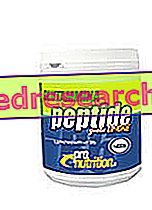PERSANTIN ® is a drug based on Dipyridamole.
THERAPEUTIC GROUP: Antithrombotics
IndicationsAction mechanismStudies and clinical effectiveness Usage and dosage instructionsWarnings Pregnancy and lactationInteractionsContraindicationsUndesirable effects
Indications PERSANTIN ® Dipiridamolo
PERSANTIN ® is indicated as an oral pharmacological aid in the treatment and prevention of thrombus embolism, associated with the presence of mechanical prosthetic heart valves.
PERSANTIN ® is indicated for the treatment of symptoms due to increased platelet aggregation in the heart, brain and kidney.
With high dosage and prolonged release, PERSANTIN ® can also be used in the secondary prevention of ischemic stroke and transient ischemic attacks.
Mechanism of action PERSANTIN ® Dipyridamole
Dipyridamole, taken orally with PERSANTIN ® is absorbed at the gastro-intestinal level, maintaining bioavailability levels that generally do not exceed 60% of the total dose taken.
The delayed release formulation also allows better control of the absorption profile (prolonged up to 7-10 hours), maintaining - through just two administrations - blood levels included in the therapeutic range throughout the day.
Dipyridamole is subsequently glucuronated in the liver in monoglycuronide and excreted via the bile, and therefore fecal, with a partial enterohepatic circulation.
Linked to plasma proteins, it is transported into the circulation, where it carries out its antithrombotic therapeutic action. More precisely, this active principle is able to determine an increase in the production and secretion, by the vascular endothelium, of PGI2, prostacyclin with opposite effects to the Thromboxane A2, therefore able to induce vasodilation and inhibit platelet aggregation.
Furthermore, dipyridamole can exert a direct effect on platelets, inhibiting platelet phosphodiesterase and increasing intrapiastrin AMP levels, useful effects to prevent the mobilization of intracellular calcium, blocking phospholipase and all those mechanisms underlying the coagulating activity.
All these molecular mechanisms result in improved coronary flow, oxygenation and myocardial metabolism, as well as a general improvement in the patient's hemodynamic properties.
Studies carried out and clinical efficacy
ASPIRIN / DIPIRIDAMOL IN THE IMMEDIATE TREATMENT OF THE ISCHEMIC EVENT
Patients with symptoms of acute ischemic stroke were immediately treated with 25mg of aspirin and 200mg of dipyridamole. The results obtained allow us to understand how effective immediate therapy can be in the prevention of disabilities associated with the ischemic event, highlighting a protective effect of therapy for over 50% of patients undergoing treatment.
2. THE EFFECTIVENESS OF COMBINED THERAPY IN THE PREVENTION OF ISCHEMIC RECIDIVES
In about 25% of cases, ischemic events are recurrent and more and more disabling. This study evaluates the effectiveness of combined aspirin - dipyridamole therapy in the prevention of ischemic recurrence, compared to the relative monotherapies. The data show that combined therapy can reduce recurrent ischemic events by 36%, a decidedly higher value compared to 18 and 16% observed, respectively, for aspirin and dipyridamole monotherapies.
CITOPROTECTIVE EFFECTS OF DIPIRIDAMOLO
The study of the pathogenesis of ischemic and vascular events is increasingly investigating the role of inflammation and inflammatory damage in the genesis and progression of the disease. These new evidences allow to re-evaluate the therapeutic action of dipyridamole, meaning it no longer as a simple antithrombotic, but as a pleiotropic active principle. In fact, experimental evidence suggests the potential anti-inflammatory and cytoprotective role of dipyridamole on nerve and vascular cells subjected to strong inflammatory stress.
Method of use and dosage
PERSANTIN ® dipyridamole 25/75 mg coated tablets : the doses used in oral therapy are susceptible to important variations, depending on the type of disease, the patient's physiopathological conditions and individual susceptibility to pharmacological action.
For this reason the correct dosage should be formulated by the doctor only after a careful clinical evaluation.
In principle, the manufacturer of PERSANTIN ® clinical practice suggests the following therapeutic intervals:
- Coronary heart failure and coronary heart disease: initial dose between 150/300 mg per day and maintenance dose between 75/150 mg per day.
- Prophylaxis of myocardial infarction: 2 annual cycles of 6 weeks with 75mg per day
- Cardiopathies, as adjuvant therapy: 50/75 mg for 4 weeks
- Cerebral, cardiac and renal disorders due to increased platelet aggregation: 300/400 mg per day
For higher dosages, as well as in the secondary prevention of ischemic stroke and transient ischemic attacks, where the daily dosage can reach concentrations above 400 mg / day, it is preferable to use the formulation of PERSANTIN ® in 200mg modified-release tablets of dipyridamole.
IN ANY CASE, BEFORE TAKING PERSANTIN ® Dipiridamol - THE PRESCRIPTION AND CONTROL OF YOUR OWN DOCTOR IS NECESSARY.
Warnings PERSANTIN ® Dipiridamolo
The vasodilatory action induced by PERSANTIN ® determined by the production of prostacyclinin, could determine peripheral vasodilation, therefore cali pressor particularly evident in patients hypothesis. For this reason, the use of dipyridamole in hypothesis patients, with severe coronary insufficiency and coronary disease of various degrees, should be under strict medical supervision, and with particular care.
For patients with myasthenia gravis and gallstones it may be necessary to review the treatment plan.
The evaluation of the patient's coagulation framework should in any case precede the intake of PERSANTIN ® and be repeated at regular time intervals during the therapeutic procedure.
PERSANTIN ® 5 and 75 mg contains sucrose, so it is not recommended to take it in patients with hereditary problems of fructose intolerance, or suffering from glucose-galactose malabsorption or enzyme deficiencies of sucrase isomaltase. Likewise, the presence of lactose in PERSANTIN ® 5 extends these warnings even to patients with lactase enzyme deficiency.
PREGNANCY AND BREASTFEEDING
Dipyridamole does not appear to have direct effects on the health of the fetus; however, major hemodynamic changes could compromise normal placental perfusion and increase the risk of bleeding. In this regard, also considering the secretion of the active ingredient in breast milk, we do not recommend the use of PERSANTIN ® during the entire period of pregnancy and lactation.
Interactions
Dipyridamole does not appear to determine clinically relevant interactions with other active ingredients. It is of course important to emphasize that the concomitant administration of drugs with anticoagulant or antihypertensive effects could accentuate the therapeutic effects of PERSANTIN ® of the risk of side effects.
In contrast, concomitant intake of theophylline preparations could reduce the therapeutic effect of PERSANTIN ®
Dipyridamole can also hinder the therapeutic effect of cholinesterase inhibitors, thus aggravating the symptoms in patients with myasthenia gravis.
Contraindications PERSANTIN ® Dipiridamolo
PERSANTIN ® is contraindicated in case of hypersensitivity to one of its components.
Undesirable effects - Side effects
PERSANTIN ® appears to be well tolerated; indeed, the described side effects tend to be of low clinical relevance and above all transient.
The most common ones are vomiting, diarrhea, dizziness, nausea, headache and myalgia, while hypotension, tachycardia, hot flushes, urticaria, bronchospasm, angioedema and hemorrhage are decidedly less frequent, verifiable in particular categories of patients at risk or in case of errata dosage formulation.
Note
PERSANTIN ® is salable only under medical prescription.



